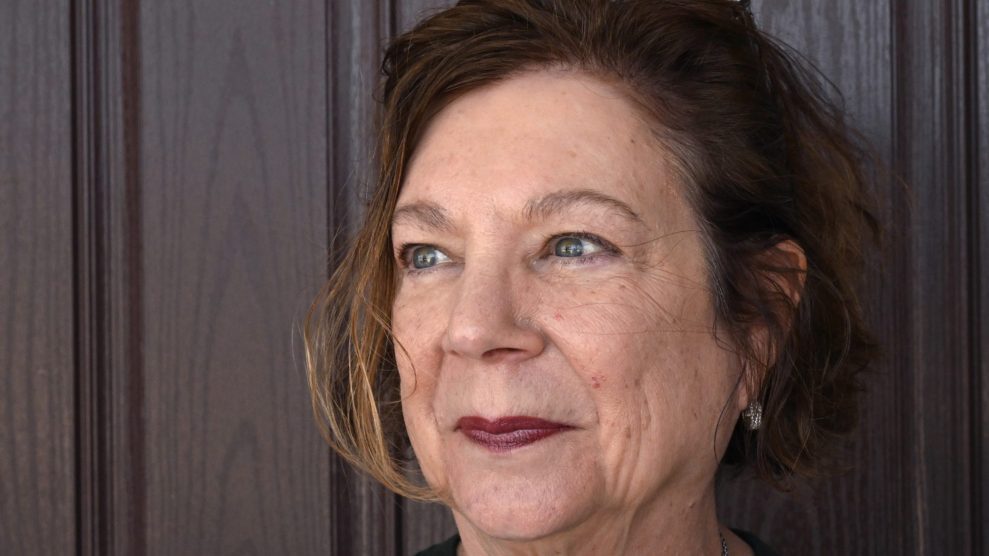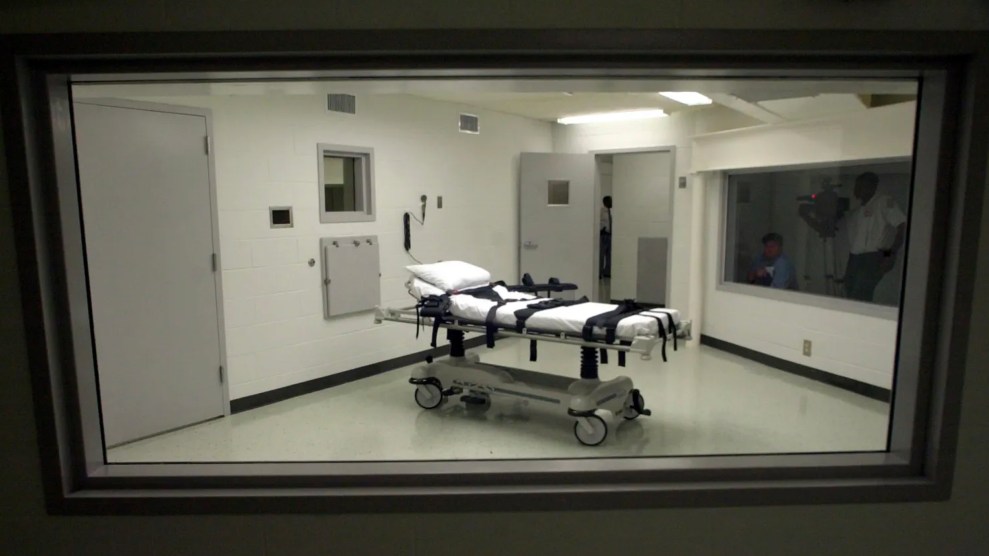
Molly Mendoza
Last year, 25-year-old Carlee Russell called 911 in Hoover, Alabama, reporting that there was a child on the interstate. Then Russell vanished, and no child was found. A massive search effort followed, along with a national media frenzy. Two days later, she returned home, seemingly unharmed but claiming that she had escaped a kidnapping.
After about a week, sympathy for Russell turned to anger as investigators concluded that she had faked her disappearance and charged her with two misdemeanors for false reporting. She pleaded guilty, and a judge ordered Russell to pay nearly $18,000 in restitution and to serve probation and community service—a sentence deemed far too lenient by those outraged by Russell’s actions. Nothing less than jail time would satisfy them.
“The biggest thing was just the impact it had,” said Alabama state Rep. Mike Shaw, a Republican from Hoover. “I mean, hundreds of people showed up to search, and it was a pretty damaging thing for the community.”
Emboldened by the community outrage, Shaw and other state lawmakers proposed legislation that was designed to deter, or at least more severely punish, the next Carlee Russell. The bill, which has cleared the House of Representatives and is poised for a vote in the Senate, would create a new class C felony punishable by up to 10 years in prison for a false report that “alleges imminent danger to a person or the public.”
“One of the real problems with that false report is that it hurts the next person who actually experiences something,” Shaw said. “If you have a false report, it kind of makes everybody skeptical on the next one.”
As anyone who has been told the fable of the child who cried wolf knows, Shaw is right that false reports lead to more skepticism. But the outsized attention they receive obscures the fact that they’re relatively rare. And this legislation doesn’t consider a prevalent problem: the troubling track record of police in Alabama and across the country when it comes to framing reports of violence as having been made up.
Kijana Mitchell is an Alabama-based advocate for survivors of domestic violence who’s also worked as a 911 dispatcher. She said she’s encountered law enforcement officers who suspect a victim is lying simply because they make the common and complicated decision to return to an abusive relationship.
And she fears this bill could work in the favor of abusers—“master manipulators ”—who will use it to convince victims not to report an assault to skeptical officers. “A law like this can scoop up a lot of innocent victims” if people aren’t able to prove their case to the police’s satisfaction, Mitchell said. “This added factor that our lawmakers are trying to bring into the equation will really bolster a lot of [abusers’] ability to keep victims from speaking up.”

For the last six years, I’ve been collecting and researching cases in which people—mostly young women and sometimes children—were charged with falsely reporting a rape or sexual assault. I’ve amassed more than 230 cases that span the country, an investigation we first shared in the documentary Victim/Suspect, streaming on Netflix. In our first-of-its-kind qualitative analysis, we found a pattern of police turning their suspicions to the reporting victim before thoroughly investigating the alleged crime.
Academic studies consistently estimate that 2–8 percent of reports of sexual assault and rape are false. But police officers presume reporting victims are lying much more frequently: In one 2010 study, a majority of sex crimes detectives with less than seven years of experience believed that anywhere from 40–80 percent of rape reports were false. And a 2018 study found that officers’ estimates of false rape reports go up the more they believe in popular myths about rape, like the idea that women lie about rape after regrettable sex or they bear responsibility if they were drunk.
In case after case I reviewed, detectives didn’t interview suspects or send rape kits to the lab. Instead, they interrogated the reporting victim, seizing on the moment when they backtracked or buckled under the pressure, framing it as either a recantation or a confession. In one-quarter of the 52 cases we analyzed, it took investigators less than 24 hours after the report was made to conclude the victims were lying.
Tangled up in these reports are complicating factors: gaps in memory due to trauma, delays in reporting, and a lack of physical evidence. I’ve watched or listened to more than a dozen recorded interrogations and interviewed women who were charged with false reporting.
What I heard again and again were police officers clumsily or aggressively questioning alleged victims, who were typically interviewed alone, in the same manner in which they interrogated suspects. One detective lied to a teenager, saying videos proved her account of being raped at a party wasn’t true. She was left confused and desperate to end the interaction. Another detective told a 12-year-old who insisted she was raped by a family member that she would have to return to foster care. A college student facing harsh questioning about an allegation of sexual assault eventually agreed when police said it wasn’t true, wanting to drop the case.
All of them saw the police conclude their reports were intentionally fabricated and were charged with crimes.
Emma Mannion is all too familiar with this dynamic. In 2016, when she was an 18-year-old freshman at the University of Alabama, she told police that a man she’d met earlier that night had raped her in the back of a car while his friend stood guard. “Knowing what I know now, I would absolutely not report,” said Mannion, now living in her home state of New Hampshire.
Tuscaloosa investigators concluded within a few days that she lied because she was ashamed that she had sex with a stranger. Under questioning for two and a half hours, Mannion never backed away from her allegation that she was raped—and still hasn’t. But there was a moment in her interrogation when everything seemed to change. A detective chided her for wasting police resources. She had distracted him from working with “true victims,” he said.
“I’m so sorry,” she responded.
“Well, if you’re sorry, then that makes me feel better,” the detective said, softening his tone.
Police records summarized that Mannion confessed to lying about the assault and she was charged with making a false report to law enforcement.
Shortly before Mannion had to decide whether to fight the charge, she heard about what happened to University of Alabama student Megan Rondini, who was also interrogated by Tuscaloosa police after reporting a rape. Similarly, detectives quickly turned the focus of their investigation against Rondini. While a grand jury considered criminal charges against her in February 2016, Rondini took her own life.
Mannion said she wasn’t mentally stable enough to go through a trial and relive the incident again and again. She pleaded guilty to a youthful offender charge, a generic label used for nonviolent crimes. Mannion faced only a misdemeanor. But other young women seeking justice after being sexually assaulted could face felony charges.
“I already have a hard time comprehending and understanding how they did what they did,” Mannion said. “I cannot fathom [Tuscaloosa police] looking at 18-year-old Emma and going, ‘Yes, this is a felony charge, and she should go to prison.’ ”
There is no evidence that false reports in Alabama—or nationwide—are increasing or creating a measurable strain on police resources. Nonetheless, this isn’t the first time Alabama has tried to make false reporting penalties more severe. In 2019, then-Rep. Dickie Drake, a Republican, introduced a similar bill, aiming to make a false report of sexual assault or rape a class C felony. At the time, advocates and survivors testified against the measure, saying it would only deter legitimate reports of assault. It didn’t make it out of the Judiciary Committee.
Sen. Merika Coleman, a Democrat based in the greater Birmingham area, spoke out against the bill back then and intends to do the same when the new proposal goes to a vote in the Senate. “I think that it can make our communities less safe,” she said. “If someone is afraid to report because they may face up to 10 years in prison if they are not believed, you would have a monster still on the streets.” She also said the racial dynamics of Carlee Russell’s case can’t be ignored. Russell is a young Black woman who received the type of sympathetic media treatment usually reserved for blond-haired, blue-eyed women. “I think people got pissed off,” Coleman said. “White folks got pissed off.”
The proposed bill includes a qualifier that the false report must allege “imminent danger” to a person or the public, a provision a sponsor said is intended to account for only the most egregious false reports: someone falsely reporting a bomb threat, for instance, or a report similar to Russell’s that launches a big police response. But could a report of a stranger rape or an abusive spouse with a gun also be considered an imminent threat? After Mannion reported rape, her university issued a public safety notice to warn other students.
Best estimates suggest that only about a third of sexual assaults are reported to police, and advocates worry this bill could further exacerbate already existing police and victim mistrust.
“My greatest fear is that this bill will cause victims of sexual violence to read this as another reason NOT to report,” Brenda Maddox, executive director of the Tuscaloosa SAFE Center, a sexual assault crisis center, wrote in an email. “These types of crimes are significantly underreported because by nature they are shrouded in secrecy, not to be talked about in the light of day, and often turned back on the victim as being culpable in their own crime.”
Shaw, the state representative who proposed the House version of the bill, said he spoke to constituents, law enforcement officers, and his fellow legislators while drafting this legislation. But he said he didn’t reach out to anyone who works with victims, the community that is most likely to ask police for help and at risk of being accused of false reporting.
He acknowledged the bill is in response to the Russell case—a “sample size of one,” he said. “I think it’s somewhat reactive. But we’re really trying not to be.”
If this bill passes and law enforcement officers in Alabama pursue felony charges for a rape or domestic violence case and there are questions about the quality of the investigation, Shaw promised that he would look into it.
Watch the trailer for Victim/Suspect now streaming on Netflix.















